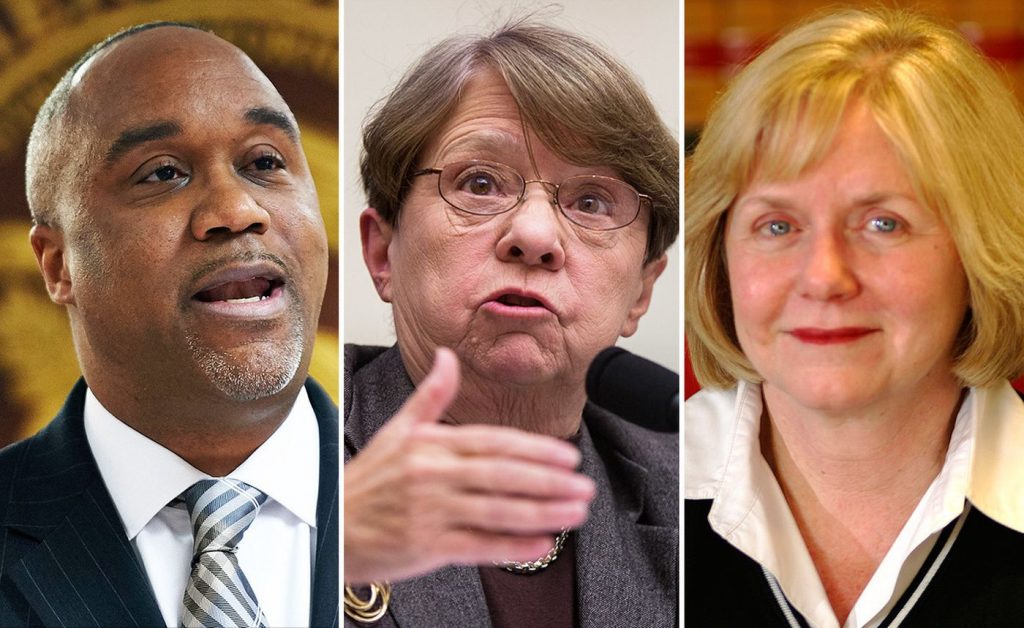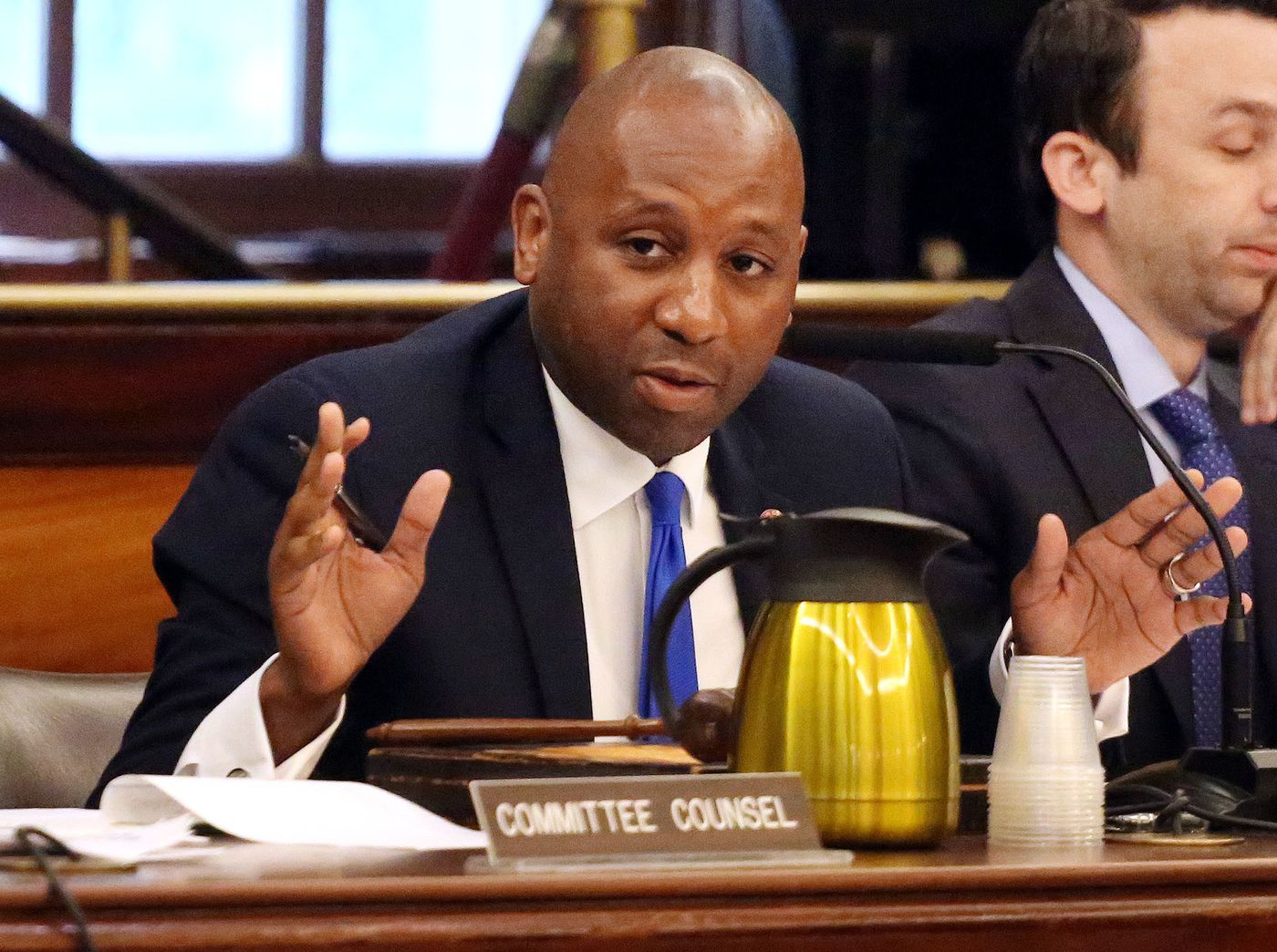





Former Brooklyn US Attorney Robert Capers, former Manhattan US Attorney Mary Jo White and former Federal Judge Barbara Jones (left to right) have been chosen to review how the NYPD disciplines its force. (James Keivom/New York Daily News, Zach Gibson/Getty Images Chang W. Lee/The New York Times.)
Three former feds have been tapped by the NYPD to review how the nation’s biggest police department disciplines its own.
The announcement Thursday follows a Daily News series that raised questions about how the NYPD monitors and punishes officers accused of wrongdoing, whether by its own investigators or by those who file lawsuits.
The series also took a hard look at what critics call “white shirt immunity” for police bosses who are often cut a break for offenses that lower-ranking officers get stiff penalties for — and who have been accused of pulling strings to help out other officers they like.
On May 31, City Councilman Donovan Richards, who chairs the Public Safety Committee, said in a letter to Mayor de Blasio and Police Commissioner James O’Neill that “allegations of favoritism and meddling in internal investigations” required a review of the internal disciplinary process.
“The residents of New York City deserve to know that every officer under investigation will receive the same treatment without interference from any superior officers,” Richards wrote
On Thursday, Richards lauded the announcement of the panel.
On the panel are Mary Jo White, a former Manhattan U.S. attorney and former chairwoman of the Securities and Exchange Commission; Robert Capers, a former Brooklyn U.S. attorney, and Barbara Jones, a former Manhattan federal judge.
Tina Luongo, who heads the Legal Aid Society’s criminal defense unit, said the panel was “drastically overdue.”
“The culture of impunity at the NYPD is thriving, and countless New Yorkers – our clients and other black and brown individuals – who have been wronged by the police still have not seen justice,” Luongo said. “We hope this panel is more than window dressing for the sake of mitigating a public relations disaster, and is actually a body with authority that will propose bold measures to overhaul a broken system.”
The panel will be given four months to conduct its review, during which time it will have access to police records and talk with those critical of how the NYPD does business, and report back to O’Neill.
First Deputy Benjamin Tucker said the department over the past several years has sought to build trust with New Yorkers and with police officers, the latter by “treating our officers with fairness and equity as they go through the disciplinary process.”
Still, he said, there was room for “another look with fresh eyes.”

Deputy Commissioner for Legal Matters Lawrence Byrne said O’Neill made the decision to appoint the panel after listening to concerns from “outside voices,” including the City Council, advocates and the police unions.
“This is forward-looking,” Byrne said. “How do we make the process better?”
Not by having outsiders looking at the disciplinary system, said Patrick Lynch, head of the Patrolmen’s Benevolent Association, the largest police union.
“It’s hard to imagine how yet another team of professional scrutinizers will help (O’Neill) do that job,” Lynch said in a statement. “This new panel will undoubtedly increase the pressure on the NYPD to mete out unjustly heavy-handed discipline, further damaging police officers’ morale and due process rights.”